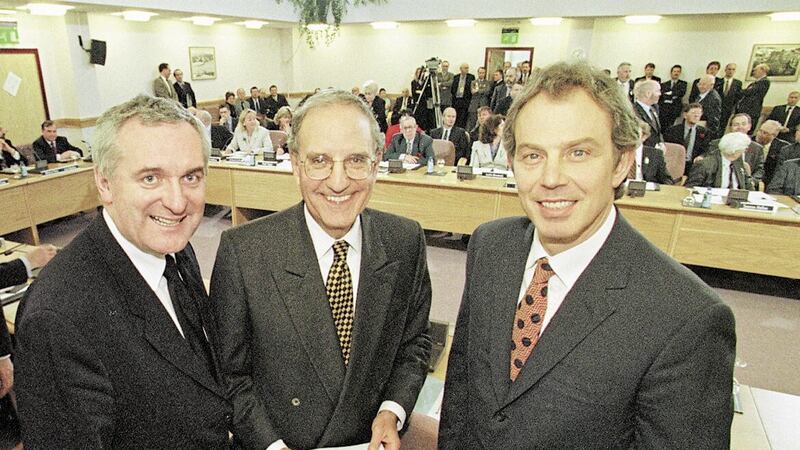John Hume said that you cannot eat a flag. But neither can you eat the Good Friday Agreement.
It is easy to be irritated when many of those who were hostile to the agreement are now its greatest advocates.
But it is important to be able to recognise and respond when the agreement is no longer fit for purpose. And that time has come. The agreement is not just in need of functional changes such as the abolition of designations and vetoes as favoured by the Alliance Party and of recent times by the Irish government. There is much to recommend those changes, but they won’t solve the current problems.
The agreement has been in existence for twenty-five years and it is now clear that, by itself, it is not fit to untie the knot that is strangling our politics and social and economic welfare. That recognition is not a judgment of failure but rather an analysis that the agreement served its purpose well for a time but fractious self-interest, coupled with external change, has undermined its ability to deliver any further until such time as the knot is loosened enough to allow us to breath.
The knot, of course, is the old tension between a British and an Irish union. The protocol, the collapse of devolved government, the threat of loyalist violence and the general deterioration of public services, are all subsets of that knot. The agreement proposed that the knot would be loosened over time by a softening of attitudes and identities followed by a referendum, when the secretary of state deemed that a majority in favour of Irish unity had reached a tipping point, and probably every seven years thereafter. The catch is that there is presently no majority in Northern Ireland and unlikely to be one soon. And one of the minorities, unionism, bases all its political actions on fear of the future while refusing to enter any discussion or negotiation about that future, condemning politics to a continuing stand-off.
But there is a way to break the deadlock. In every juncture of political change, unionism wouldn’t do anything, until it did it. It wouldn’t accept monies from the International Fund for Ireland and now it is the first in the door. It wouldn’t share a studio or a council chamber or an assembly or a government with republicans, until it did. The truth is it won’t join the talks about the future of this island until it sees the other political parties and the two governments are well into discussing what this place might look like in fifteen or twenty years. Unionism will have plenty to say when it does join the talks.
John Hume became very well known for his single transferable speech and I am in danger of writing the single transferable article. It is that the Alliance party have a responsibility to break the stand-off. It doesn’t have to break its back by demanding that its voters should come down on either side of the unity argument, but it has a duty to begin to untie the knot.
There was a hint of movement in that direction in the last few weeks when Naomi Long said that the direct rule that would replace a non-functioning devolved government would not be the same as in the past but would require a strong dollop of Irish government involvement. But facing into the entanglement of our history, into the reality that unionism is no longer a political majority and demographic change is a continuing reality, Alliance has a duty to go even further and challenge both governments to create a forum to discuss and plan the future, over a protracted time frame.
Faced with that evidence and continuing reality, it must admit to itself that the knot is choking us and that the promotion of their neutral, middle ground, as a solution, while well intentioned, is a delusion.









